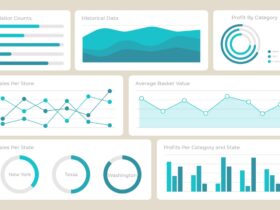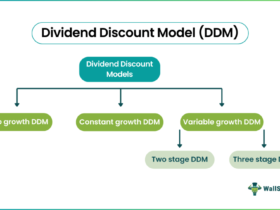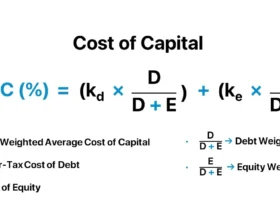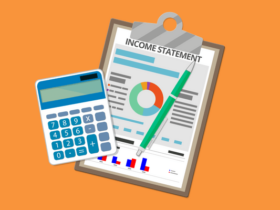1 Why a Healthy Diet is Crucial in Finance
The financial industry is characterized by its high-pressure environment, fast-paced demands, and the necessity for precision in every decision. From analyzing balance sheets to negotiating critical financial contracts, finance professionals are constantly under stress. In this context, maintaining a healthy diet is more than just about physical health—it’s the key to staying alert, energized, and resilient under work pressures.
Prolonged stress triggers the production of cortisol, a hormone that causes fatigue, reduces focus, and increases the risk of stress-related illnesses. A balanced diet rich in essential nutrients can help regulate cortisol levels, stabilize mood, and speed up recovery after stressful work hours. Foods high in Omega-3, B vitamins, and magnesium not only support brain function but also reduce anxiety and improve work performance.
In a field where decisions hinge on data analysis and risk forecasting, maintaining stable energy levels and brain health is paramount. Poor dietary choices, such as skipping meals or over-consuming caffeine, can lead to energy crashes, decreased performance, and even costly mistakes.
A healthy diet is not just a health choice but a strategic tool for overcoming stress, boosting productivity, and achieving long-term success in finance. It forms the foundation for mental clarity, sustained energy, and career longevity in this demanding field.
2 Four Ways to Maintain a Healthy Diet in Finance
The fast-paced and unpredictable nature of the financial industry makes sticking to a healthy diet a challenge. However, the following simple strategies can help you balance your work and health, reduce stress, and enhance your productivity:
2.1. Prioritize Brain-Boosting and Stress-Relieving Foods
Finance professionals need peak focus and mental agility to handle data and make crucial decisions. Consuming nutrient-dense foods can significantly improve cognitive function and reduce stress.
- Foods to Include:
- Omega-3: Found in salmon, walnuts, and chia seeds, it enhances memory and information processing.
- Vitamin B and Magnesium: Present in leafy greens, eggs, and bananas, these nutrients reduce anxiety and stabilize mood.
- Antioxidants: Found in green tea, blueberries, and dark chocolate, they mitigate stress’s impact on the body.
- How to Apply:
Incorporate these foods into meals or snacks. For example, start your day with oatmeal topped with blueberries, or enjoy a mid-day snack of nuts rich in Omega-3.
2.2. Stick to Regular Mealtimes to Maintain Energy Levels
Long working hours and intense deadlines can tempt finance professionals to skip meals or eat irregularly, causing blood sugar fluctuations that lead to fatigue and reduced focus.
- Tips for Implementation:
- Eat three balanced meals daily and supplement with healthy snacks like yogurt, fruit, or nuts during work hours.
- Prioritize breakfast as the cornerstone of your day. For instance, a meal of whole-grain toast, eggs, and avocado provides lasting energy.
- Pro Tip:
Use meal reminders or prep meals in advance to avoid skipping meals, even during busy schedules.
2.3. Limit Caffeine and Sugar to Control Stress
Many finance professionals rely on coffee or sugary drinks to stay alert, but overconsumption can lead to anxiety, energy crashes, and diminished focus.
- Recommendations:
- Restrict caffeine intake to no more than two cups of coffee per day, replacing regular coffee with green tea or herbal alternatives.
- Cut back on sugary drinks like sodas and opt for fresh fruit juices or water infused with lemon slices.
- Benefits:
Reducing caffeine and sugar not only stabilizes energy but also improves sleep quality and emotional regulation.
2.4. Plan Healthy Meals Around a Busy Schedule
A packed schedule often results in unhealthy fast-food choices. Pre-planning meals ensures a nutritious diet and reduces dependence on processed foods.
- Practical Tips:
- Meal Prep: Spend time on weekends planning and preparing meals for the week. Pack balanced lunch boxes with lean protein, leafy greens, and brown rice for office days.
- Stock Healthy Snacks: Keep nuts, pre-cut fruits, or natural energy bars at your desk for quick, healthy bites.
- Advantages:
Pre-planning saves time, guarantees proper nutrition, and minimizes the temptation to grab unhealthy options during hectic workdays.
Conclusion: A Healthy Diet – The Foundation for Financial Resilience
The financial sector demands sharp focus, endurance, and precision under pressure. A healthy diet provides the balance necessary to meet these demands. By incorporating nutrient-rich foods, maintaining regular meals, limiting caffeine and sugar, and planning ahead, you can effectively reduce stress, enhance your mood, and optimize your work performance.
A well-rounded diet supports not only your immediate productivity but also lays the groundwork for a sustainable, healthy lifestyle in your financial career. Instead of relying on temporary fixes like coffee or fast food, invest in a healthy diet to build long-term resilience.
Call to Action:
Don’t wait until stress takes a toll on your work and life. Start making small changes today—add brain-boosting foods, set consistent meal schedules, and plan healthy meals. A healthy diet doesn’t just reduce stress—it brings renewed energy and vitality, empowering you to face and conquer the challenges of the financial world.

























Planning meals ahead of time sounds helpful. I will prepare my meals on weekends to eat healthier during the week.
Eating foods like salmon and nuts can help our brain function better. This article gives good advice on what to eat.
I learned that a healthy diet is very important for people working in finance. It helps reduce stress and keep us focused.
I didn’t know that skipping meals could affect our energy levels. I will try to eat three meals every day.
Limiting caffeine and sugar is a great tip! I often drink too much coffee, and now I see it can make me anxious.
Can you be more specific about the content of your article? After reading it, I still have some doubts. Hope you can help me.
Your article helped me a lot, is there any more related content? Thanks!
Can you be more specific about the content of your article? After reading it, I still have some doubts. Hope you can help me.
Thank you for your sharing. I am worried that I lack creative ideas. It is your article that makes me full of hope. Thank you. But, I have a question, can you help me?
Can you be more specific about the content of your article? After reading it, I still have some doubts. Hope you can help me.
Thanks for sharing. I read many of your blog posts, cool, your blog is very good.
В поисках надежного поставщика редкоземельных металлов и сплавов? Обратите внимание на компанию Редметсплав.рф. Мы предлагаем обширный каталог продукции, обеспечивая высочайшее качество каждого изделия.
Редметсплав.рф гарантирует все стадии сделки, предоставляя полный пакет необходимых документов для законного использования товаров. Неважно, какие объемы вам необходимы – от мелких партий до крупнооптовых заказов, мы готовы выполнить любой запрос с прекрасным качеством обслуживания.
Наша команда службы поддержки всегда на связи, чтобы помочь вам в определении подходящих продуктов и ответить на любые вопросы, связанные с применением и характеристиками металлов. Выбирая нас, вы выбираете достоверность в каждой детали сотрудничества.
Заходите на наш сайт Редметсплав.рф и убедитесь, что качество и уровень нашего сервиса – наилучшее решение для вашего бизнеса.
Наша продукция:
Однораструбный медный обвод под пайку 18х14х0.8 мм 12.6х14.6 мм мягкая пайка М1р ГОСТ Р 52922-2008 Выбирайте высококачественные медные однораструбные обводы под пайку для надежных соединений. Изготовлены из меди высокой чистоты с отличной теплопроводностью и устойчивостью к коррозии. Идеальны для систем водоснабжения и отопления.
kra32.at – кракен официальный сайт, kra33.at
Your point of view caught my eye and was very interesting. Thanks. I have a question for you.
vlilhf
Thanks for sharing. I read many of your blog posts, cool, your blog is very good.
Thank you for your sharing. I am worried that I lack creative ideas. It is your article that makes me full of hope. Thank you. But, I have a question, can you help me? https://www.binance.com/ka-GE/join?ref=UM6SMJM3
Can you be more specific about the content of your article? After reading it, I still have some doubts. Hope you can help me.
Thanks for sharing. I read many of your blog posts, cool, your blog is very good. https://www.binance.com/en-IN/register?ref=UM6SMJM3
I don’t think the title of your article matches the content lol. Just kidding, mainly because I had some doubts after reading the article.
Can you be more specific about the content of your article? After reading it, I still have some doubts. Hope you can help me. https://www.binance.com/fr-AF/register?ref=JHQQKNKN
v21oqj
I don’t think the title of your article matches the content lol. Just kidding, mainly because I had some doubts after reading the article. https://www.binance.com/zh-CN/join?ref=VDVEQ78S
Thank you for your sharing. I am worried that I lack creative ideas. It is your article that makes me full of hope. Thank you. But, I have a question, can you help me? binance hesabi olusturma
?Llevas tiempo queriendo encontrar un buen casino online legal en Espana para ganar dinero verdadero? Yo tambien estuve en esa situacion hasta que encontre juegos online con dinero real.
Este sitio me parecio una comparativa actualizada de casinos en linea en Espana donde los pagos estan garantizados. Lo primero que me gusto fue que la pagina solo recomienda plataformas legales en Espana. Eso garantiza transparencia. Ademas, las plataformas funcionan genial desde el telefono. Lo uso mientras viajo por Espana y la experiencia fue fluida.
?Bonos? ?Claro que si! Las plataformas recomendadas ofrecen recompensas por primer deposito para que puedas probar los juegos sin arriesgar mucho. ?Te gusta el blackjack? Tienen de todo. Desde tragamonedas con dinero real hasta jackpot progresivo, todo esta ahi.
El proceso de retiro es rapido. Yo recibi el dinero por transferencia y me llego en 24h. Eso habla bien del sitio. Si eres de Madrid, te invito a visitar esta web. Ahi encontraras sitios seguros para ganar dinero en este ano.
Jugar con cabeza es importante. Y hacerlo en un sitio verificado es el primer paso.
No te arriesgues en sitios dudosos, entra a ver las opciones.
I’ll immediately grab your rss as I can not find your email subscription link or newsletter service. Do you’ve any? Please let me know in order that I could subscribe. Thanks.
I don’t think the title of your article matches the content lol. Just kidding, mainly because I had some doubts after reading the article.
**mindvault**
mindvault is a premium cognitive support formula created for adults 45+. It’s thoughtfully designed to help maintain clear thinking
**mind vault**
mind vault is a premium cognitive support formula created for adults 45+. It’s thoughtfully designed to help maintain clear thinking